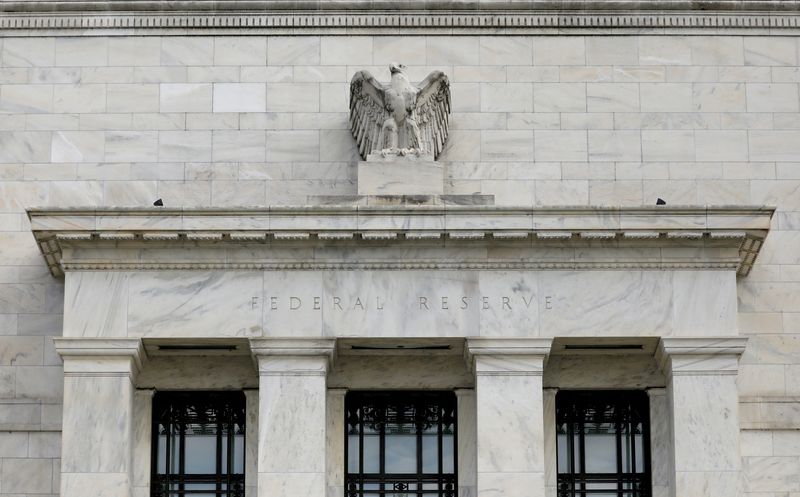By Jonnelle Marte
(Reuters) - U.S. consumers' short-term inflation expectations pushed higher in November and expectations for future earnings growth dropped, suggesting they anticipate price increases will outpace wage gains at an even faster rate in the near term, according to a survey released on Monday by the New York Federal Reserve.
Prices for food and other goods are rising at the fastest pace since 1982, according to data released by the Labor Department last week, posing political challenges for President Joe Biden's administration and cementing expectations the Fed will raise interest rates next year.
Higher inflation, caused in part by pandemic-related supply chain disruptions and demand shifts, is also eroding wage gains, and some consumers expect that situation to worsen in the near term, according to the New York Fed survey. While near-term inflation expectations rose, year-ahead earnings expectations declined in November.
Consumers said they expect inflation to reach a median of 6.0% in one year, up from an expectation of 5.7% in October. Expectations for year-ahead earnings growth dropped to 2.8% in November from 3.0% in the previous month.
That would leave inflation growing 3.2 percentage points faster than earnings in one year, the widest gap since the survey launched in 2013.
Median expectations for what inflation could be in three years, however, dropped to 4.0% from 4.2%, the first decline since June and only the second drop since October 2020. And uncertainty over what future inflation could look like also rose to new highs for the New York Fed survey.
INFLATION OVERSHADOWS EMPLOYMENT
Inflation is now the central economic concern voiced by American consumers, according to the latest Consumer Sentiment Index survey from the University of Michigan.
"When directly asked whether inflation or unemployment was the more serious problem facing the nation, 76% selected inflation while just 21% selected unemployment," Richard Curtin, the survey's director, said in a statement on Friday with the release of the latest reading covering early December.
Fed officials, stung by persistently high inflation and encouraged by lower-than-expected unemployment, are likely to announce after their policy meeting this week that they plan to wind down their bond-buying program more quickly to clear the way for rate increases.
Some policymakers say they are worried low interest rates could be fueling stronger gains in stock market prices, real estate values and other asset prices.
The survey showed expectations for future home price growth declined slightly last month, but consumers are still expecting more robust growth than they did before the coronavirus pandemic. Consumers said they expect home prices to rise by a median of 5% in one year, down from 5.6% in October but well above the 3.1% expected in February 2020.
The monthly survey of consumer expectations is based on a rotating panel of approximately 1,300 households.
